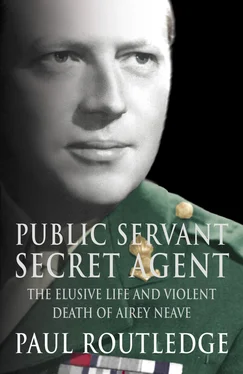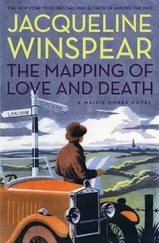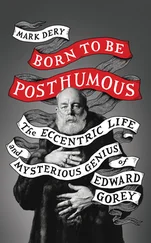1 ...8 9 10 12 13 14 ...23 German artillery found their range on Calais docks as these reserves were landing and the siege of Calais began in earnest. The British High Command was in an agony of indecision: whether to fight to the death in the strategic port, dominated by fortifications dating back to the sixteenth century, or withdraw. Churchill had once described Calais as ‘simply an enceinte [fortification] protected by a few well-executed outlying fieldworks … it could certainly not be counted on to hold out more than a few days against a determined attack’. Indeed, at 3.00 a.m. on 24 May, the War Office telegraphed Brigadier Claude Nicholson, commander of British forces in the port, that it had decided ‘in principle’ on evacuation. Many British soldiers, including Neave, hoped desperately that that decision would be implemented. It never was.
As Neave related in his war classic, The Flames of Calais , it was impossible to sleep on the night he bivouacked on the dunes to the west of the town. He was aware that Calais would be surrounded and that a battle was imminent. Yet, throughout the night, rumours of evacuation grew. Neave was frank. ‘Calais had become a city of doom, and I was not in the least anxious to remain. I did not feel heroic.’ 5 Later that day, Churchill countermanded the previous decision: a War Office telegram decreed that Calais should be defended to the end, ‘for the sake of Allied solidarity’. Nicholson was instructed: ‘Select best position and fight on.’ The garrison of Calais, recorded Glover, was deliberately sacrificed to demonstrate Britain’s commitment to her allies, ‘but it was the last major sacrifice that Britain was going to make in that lost cause’. 6 British troops trapped behind the nineteenth-century fortifications could not throw back Guderian’s panzers. The best they could do was hold up the Nazi advance so that Operation Dynamo could be implemented.
On the ground, the men were beginning to realise the way things were going. They needed no explanation. ‘It was now time to forget about evacuation and show what “non-fighting soldiers could do,’ Neave reflected. With fifty volunteers from his men, he formed up with newly disembarked troops of the Rifle Brigade and marched to the eastern ramparts. As he marched, he thought of others who had moved up the line. ‘This was it. Everything before was of no consequence. But would I pass the test?’
His orders were to reinforce ‘B’ Company of the 60th on the south-west of the town centre where a German breakthrough appeared imminent. A staff officer led them through the deserted streets to the Boulevard Léon Gambetta, which was under fire from German tanks and machine gunners advancing up the Boulogne road. Neave left his men in the shelter of a doorway and stepped nervously into the boulevard. Tracer bullets and even tank shells rained down as he made for the Pont Jourdan railway bridge. He clung for dear life to the sides of the houses as he crept towards his objective. This was his first experience of street fighting, and he was not ashamed to admit that he was acutely frightened. Reaching the bridge, he was called down to the railway tracks below by Major Poole, commander of ‘B’ Company. Poole ordered him to get his men into the houses on either side of the bridge and fire from the windows. ‘You might fight like bloody hell,’ he admonished.
Neave and his men, armed only with rifles and two Bren guns, took up position in the houses and opened fire on the German positions on the Boulogne road. Their inexperience showed, as regulars of the 60th fighting at the other side of the bridge shouted ‘F—ing well look where you’re shooting!’ Amid the firing, the proprietor of a café at the end of the street, wearing the Croix de Guerre from the First World War, coolly dispensed cognac. In mid-afternoon, a British tank made a brief appearance, prompting a furious response from the Germans, a savage bombardment which pinned Neave down in the Rue Edgar Quintet, a normally quiet street with a girls’ school, but now deserted. The only visible sign of life was the face of a frightened girl at a cellar window.
As the afternoon wore on, Neave began to feel the lack of combat training for battle: his reading of Clausewitz had not prepared him for street fighting. The heat from the sun and blazing buildings produced an unbearable thirst. He longed to get back to the café. He waited for the firing to lift and was about to cross the road when he felt a ‘sharp, bruising pain’ in his left side. He collapsed to the pavement, rifle clattering. A concerned soldier shouted from a window: ‘Are you all right, sir?’ Neave did not reply but pondered uselessly whether it was a sniper or a machine-gun bullet. He realised he could still walk, and, doubled-up, staggered across to the café. His most pressing fear was that the Germans would break through and he would be left behind and taken prisoner. It was a common fear shared by all. British combatants had a confused but horrific picture of the fate of prisoners taken by the Nazis. Death in action they understood but the stories of concentration camps made them fear capture even more. The café proprietor brought him a large measure of cognac, while a medical orderly inspected his wound. Through a half-faint, Neave heard him say: ‘You’re a lucky one, sir. ‘Arf an inch from the ‘eart.’
The orderly and a Frenchman helped him to his feet and began walking him to an aid post where they met a young officer of the 60th in a scout car, Lieutenant Michael Sinclair. Sinclair pointed out an improvised Red Cross ambulance. After an argument about where they should go, the French driver took Neave to the Hôpital Militaire, a former convent in the Rue Leveux, where he was diagnosed as having a ‘penetrating flank wound’ needing an operation. Neave still feared capture and was carried protesting to the operating theatre ‘where grinning French surgeons in white caps, and smoking Gauloises cigarettes, awaited me’. In his recovery ward, Neave could hear the shelling intensifying. The Germans had taken the town hall, which now flew the swastika. Beside him, a mortally wounded young Hurricane pilot begged him to keep talking. He died as dawn broke on 25 May and Neave folded his arms. Shells fell closer and closer, among the mulberry trees in the hospital garden and in the street outside, smashing the hospital windows. With the other wounded, he was taken down to the cellar while the battle raged outside. Two fellow officers of the Searchlights and several gunners were killed. At 2.00 p.m. that day, 25 May, Anthony Eden telegraphed Brigadier Nicholson with the instructions to maintain his defiant stand. On this occasion, there was no mention of ‘Allied solidarity’, the expression which had infuriated Churchill as being entirely the wrong way of motivating British soldiers to fight. This time the appeal was to Empire and regimental loyalty: ‘The eyes of the Empire are on the defence of Calais,’ Eden urged. Nicholson rejected two German proposals of surrender: ‘The answer is no as it is the British army’s duty to fight as well as it is the German’s.’ Deep in his hospital bunker, Neave heard progress of the battle as more wounded were brought in. Calais was on fire. At 9 o’clock that evening, Churchill and Eden came out from dinner and ‘did the deed’, ordering Nicholson to fight to the end. Churchill told his doctor, Lord Moran, ‘I gave that order; it was my decision, althought it sickened me to have to do it. But it was Calais that made the evacuation at Dunkirk.’ For years afterwards, Churchill was unable to speak of Calais without emotion.
As dawn broke on Sunday 26 May, it was plainly only a matter of time before the Germans overran the old town and the port area where British forces were still holding out. The evacuation had been cancelled, though some wounded were still being taken off under heavy shelling by motor torpedo-boat. Stuka raids again hit the hospital. Around Neave men lay badly hurt and blinded. He recollected that the smell of wounds and fear was overpowering. Yet the British laughed and laid bets on when the bombers would reappear. In mid-morning, their position became untenable. A Stuka’s bomb fell by the main doors of the hospital, blowing them in and showering debris on the wounded. Terrified that the next direct hit would bury them all alive, Neave decided to make a break for it. He could walk, with difficulty, and if he could reach the Gare Maritime he might be among the wounded being taken off. With the admonition of the French medical officer ringing in his ears, Neave and a corporal who volunteered to go with him crawled out beneath the great double doors into the burning streets. He had no idea how badly the situation in Calais had deteriorated. Whole streets were ablaze as they made their halting way northwards to the harbour station. Neave was doubled up with the pain of his wound and his companion limped badly. Thick smoke choked them both. At the junction with the Boulevard des Alliés, they turned east and continued through eerily silent Calais-Nord. Suddenly, shells burst around the pair as they passed the Courgain. Neave was not hit but the corporal ‘vanished in the blinding flash and dust’. Falling to the ground, Neave crawled to the side of the street. From a cellar window, an old Frenchman offered him a bottle of cognac. He drank, and lurched on alone to the lighthouse where he encountered troops of the Queen Victoria’s Rifles in front of the station, staring down their guns as he struggled to join their ranks. An officer barked at him to hurry up and listened in disbelief to his extraordinary story. Calais had been expertly infiltrated by German fifth columnists and the QVR were taking no chances. Neave’s identity card was carefully scrutinised as yet more cognac was dispensed. He looked round at scenes of devastation. Amid the debris lay the bodies of dead British soldiers. He was hurried to the first aid station below the Gare Maritime, where more wounded lay. Soon after, intense shelling forced them to find deeper cover in a tunnel under the port’s Bastion 1.
Читать дальше












